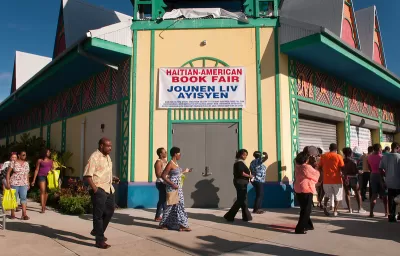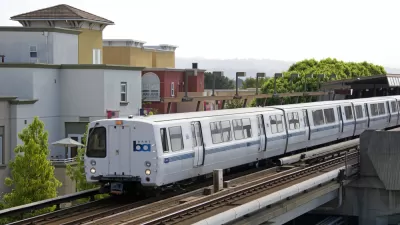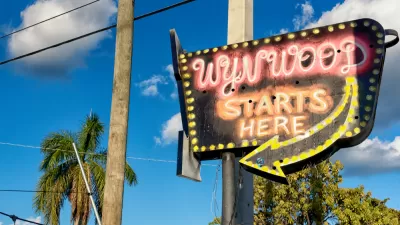The Miami Herald is running a series of articles to explore the regional housing crisis. The latest in the series focuses on gentrification and displacement in the Little Haiti neighborhood.

Andres Viglucci reports on the wave of investment and change washing over Little Haiti, describe dint he article as "one of Miami’s poorest, yet most singular and misunderstood, communities."
"Surrounded by gentrifying neighborhoods like Wynwood, the Design District and the upscale Upper East Side, the centrally located Little Haiti has become a magnet for real estate investors, business owners and speculators looking for opportunities with a low cost of entry and a potentially big upside," according to Viglucci.
Neighborhood leaders say the rising rent and land values in the neighborhood present an existential threat to the neighborhood. Local residents are vulnerable. "Little Haiti desperately needs physical and economic regeneration," writes Viglucci, and "median household income is a meager $24,800." Instead of community driven investments, real estate speculators are buying up the modest single-family homes and duplexes in the neighborhood—limited liability companies with names like Vulture Property Investments, Strictly Profits LLC, and World Domination Enterprises.
Viglucci also notes that some locals are concerned that a recently approved plan will exacerbate the threat of displacement. The Miami Commission recently approved the Magic City Innovation District plan, "which envisions construction of a nearly 18-acre, high-rise mini-city of apartments, shops and offices in the heart of the low-rise neighborhood."
The article is part of a series that exploring the housing crisis in South Florida, as well as promising future stories that will explore solutions to South Florida’s housing crisis. The Miami Herald has also produced an interactive tool to help renters and buyers match their budgets to affordable neighborhoods.
FULL STORY: Little Haiti is up for grabs. Will gentrification trample its people and culture?

Alabama: Trump Terminates Settlements for Black Communities Harmed By Raw Sewage
Trump deemed the landmark civil rights agreement “illegal DEI and environmental justice policy.”

Study: Maui’s Plan to Convert Vacation Rentals to Long-Term Housing Could Cause Nearly $1 Billion Economic Loss
The plan would reduce visitor accommodation by 25% resulting in 1,900 jobs lost.

Why Should We Subsidize Public Transportation?
Many public transit agencies face financial stress due to rising costs, declining fare revenue, and declining subsidies. Transit advocates must provide a strong business case for increasing public transit funding.

Wind Energy on the Rise Despite Federal Policy Reversal
The Trump administration is revoking federal support for renewable energy, but demand for new projects continues unabated.

Passengers Flock to Caltrain After Electrification
The new electric trains are running faster and more reliably, leading to strong ridership growth on the Bay Area rail system.

Texas Churches Rally Behind ‘Yes in God’s Back Yard’ Legislation
Religious leaders want the state to reduce zoning regulations to streamline leasing church-owned land to housing developers.
Urban Design for Planners 1: Software Tools
This six-course series explores essential urban design concepts using open source software and equips planners with the tools they need to participate fully in the urban design process.
Planning for Universal Design
Learn the tools for implementing Universal Design in planning regulations.
Caltrans
Smith Gee Studio
Institute for Housing and Urban Development Studies (IHS)
City of Grandview
Harvard GSD Executive Education
Toledo-Lucas County Plan Commissions
Salt Lake City
NYU Wagner Graduate School of Public Service





























